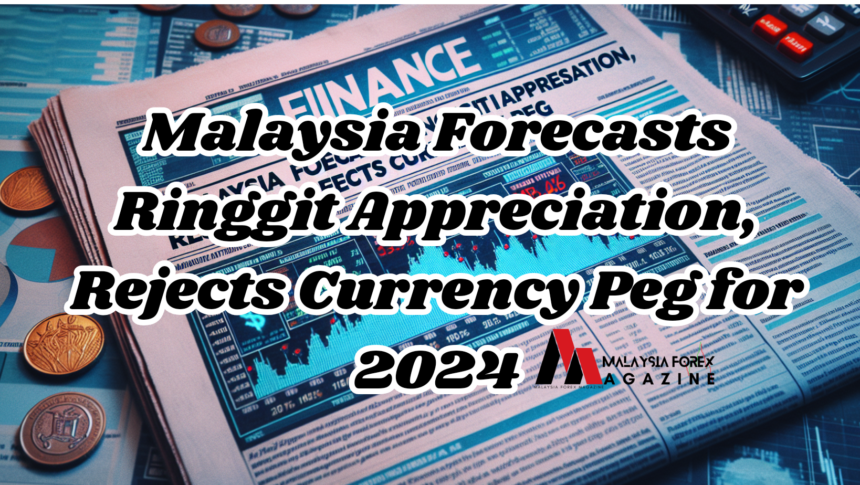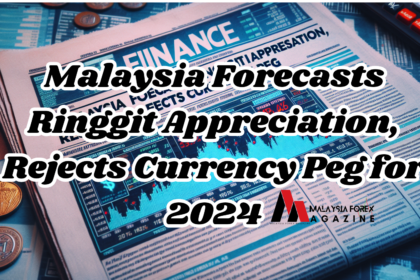KUALA LUMPUR – In a bold move signaling confidence in its economy, Malaysia has announced its expectation for the ringgit to appreciate this year, opting against a currency peg in 2024.
The decision, made by Malaysia’s economic policymakers, underscores the nation’s belief in its economic fundamentals and resilience amid global uncertainties. Rejecting a currency peg is a significant departure from the traditional approach of many emerging economies, reflecting Malaysia’s ambition for a more flexible exchange rate regime.
Finance Minister, Tan Sri Abdul Razak, stated, “We have carefully assessed the economic landscape and believe that a flexible exchange rate policy will better serve our interests in the current environment. We expect the ringgit to strengthen gradually, supported by robust economic growth and prudent monetary policies.”
The move comes as Malaysia aims to bolster investor confidence and attract foreign investments. A flexible exchange rate regime allows the currency to adjust according to market forces, potentially leading to more stable and predictable economic conditions.
Economic analysts have largely welcomed Malaysia’s decision, noting that a flexible exchange rate could help the country navigate external shocks more effectively. Furthermore, a stronger ringgit could alleviate inflationary pressures and reduce the cost of imports, benefiting consumers and businesses alike.
Dr. Liang Wei, an economist at the Malaysian Institute of Economic Research, commented, “The decision to reject a currency peg demonstrates Malaysia’s confidence in its economic fundamentals. A flexible exchange rate can act as a shock absorber, enhancing the resilience of the economy amidst global uncertainties.”
Malaysia’s move contrasts with neighboring countries that have opted to maintain currency pegs or tightly managed exchange rate regimes. While such policies can provide stability in the short term, they may limit a country’s ability to respond to changing economic conditions and external shocks.
However, some analysts caution that risks remain, particularly in a volatile global economic environment. External factors such as geopolitical tensions and fluctuations in commodity prices could pose challenges to Malaysia’s exchange rate stability.
Despite these challenges, Malaysia remains optimistic about its economic prospects and the outlook for the ringgit. The decision to reject a currency peg reflects a strategic shift towards a more market-oriented approach, signaling Malaysia’s readiness to embrace change and adapt to evolving economic dynamics.
As Malaysia sets its sights on economic recovery and growth, the stage is set for a potentially transformative year ahead, with the ringgit expected to play a central role in driving the nation’s prosperity.











